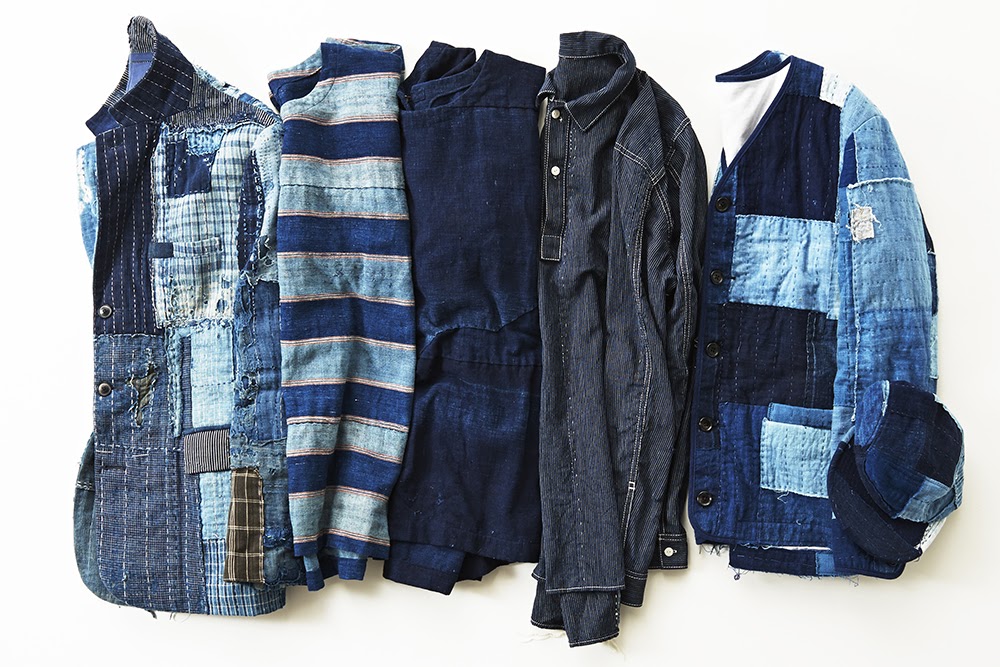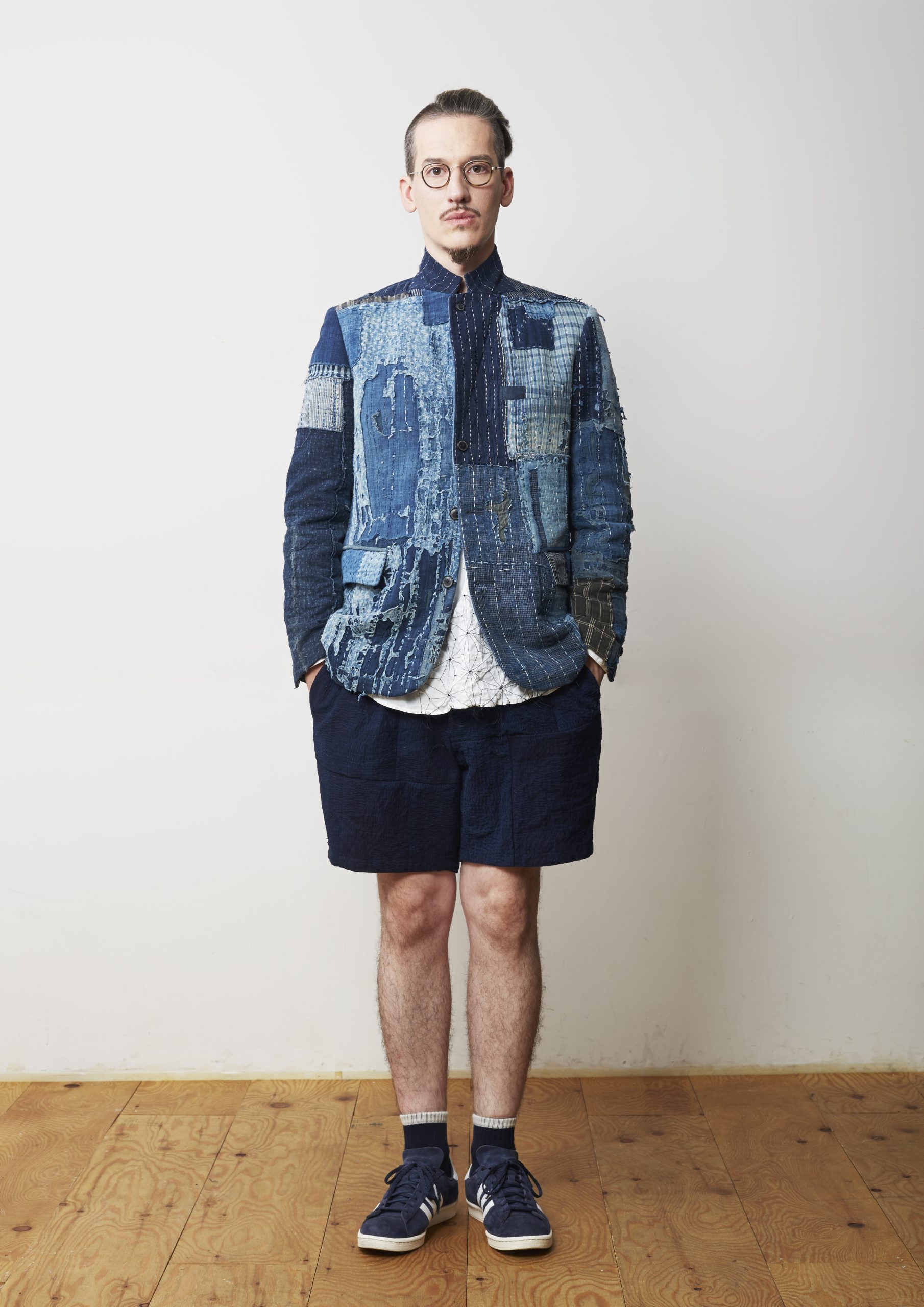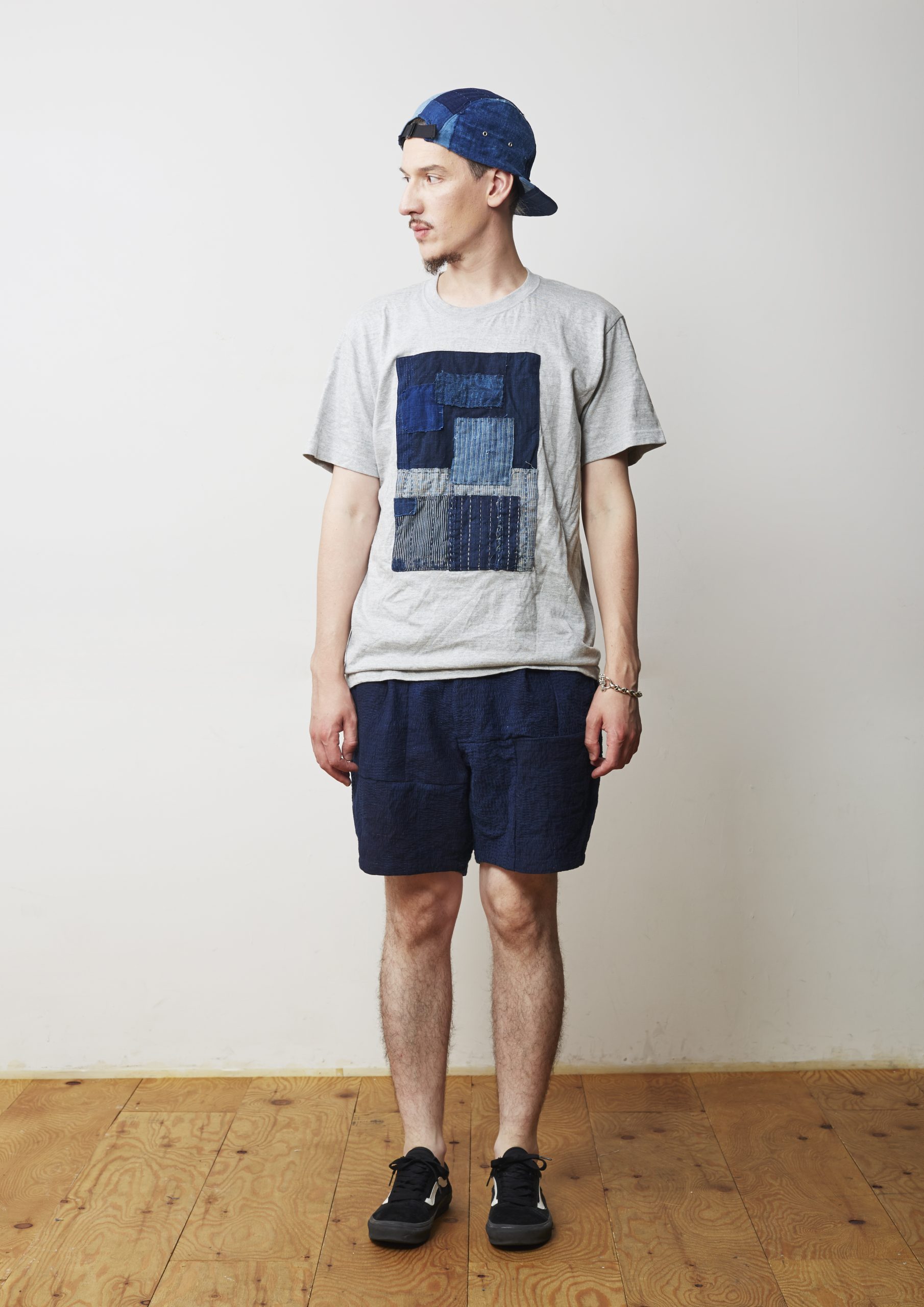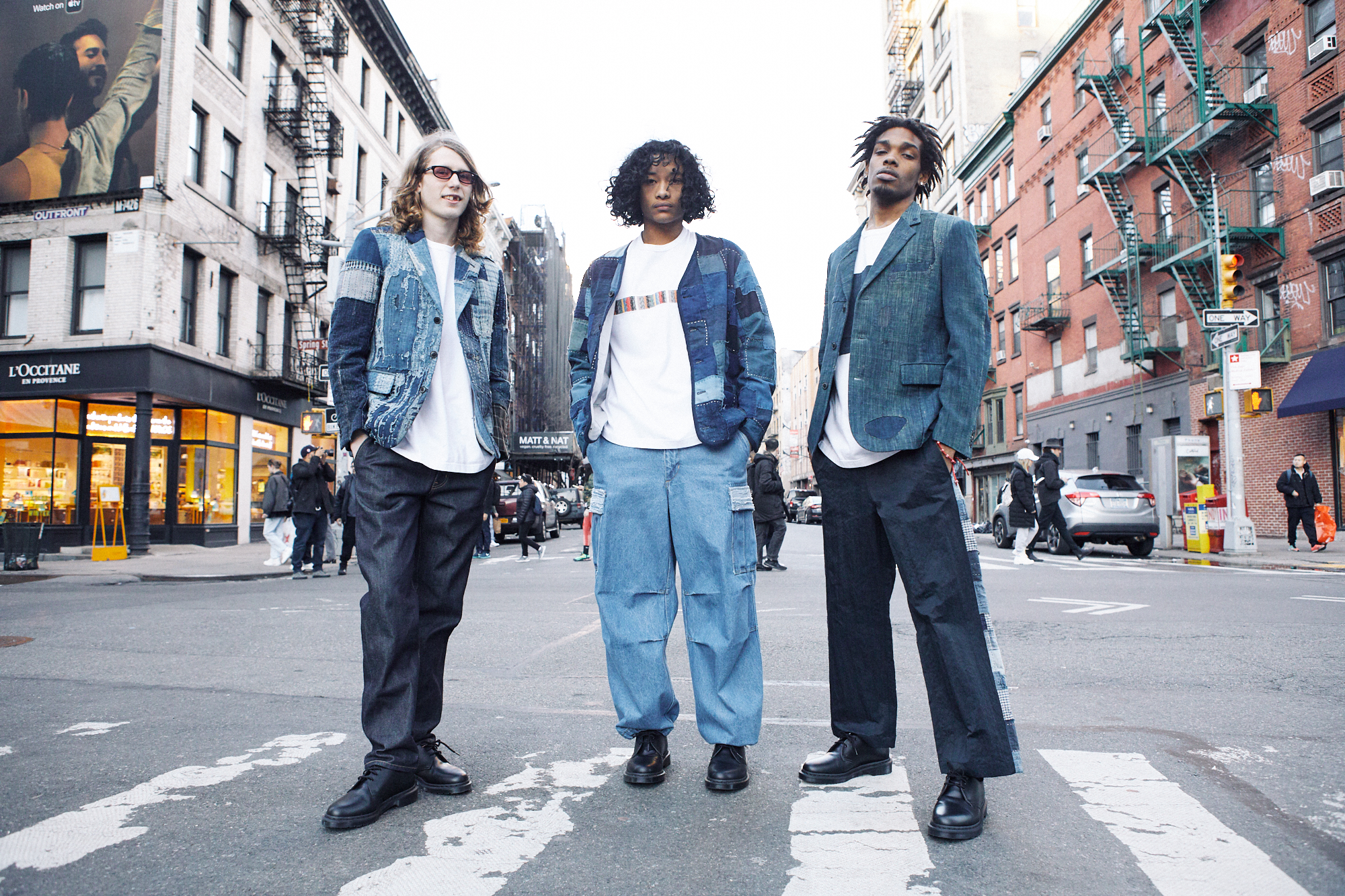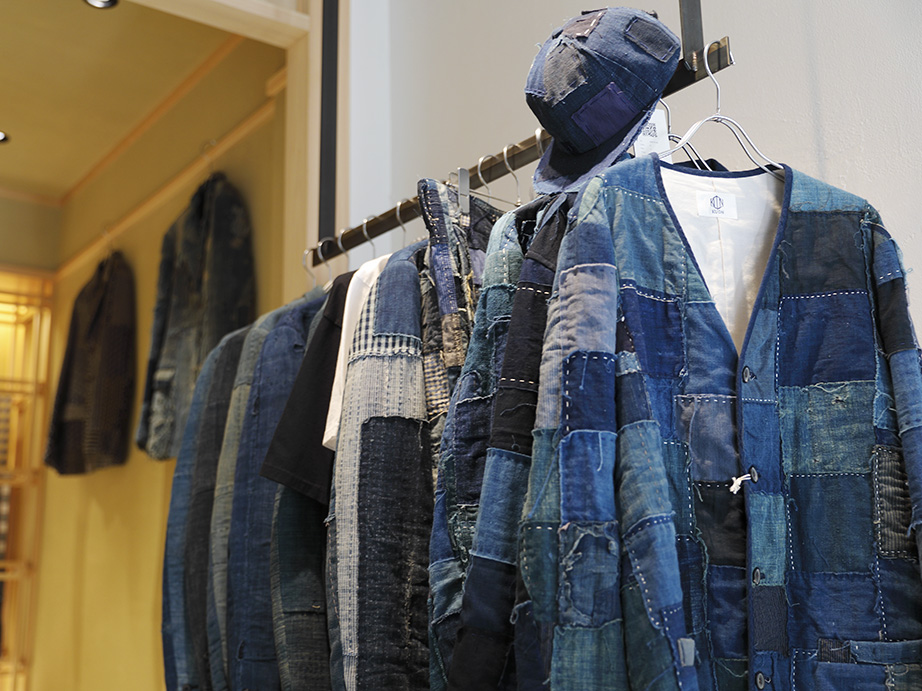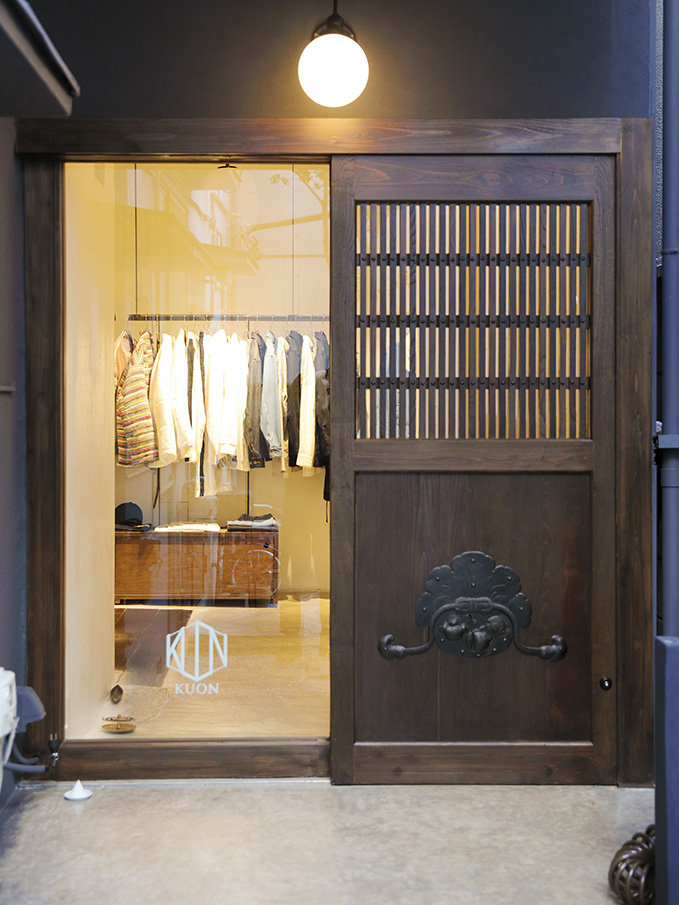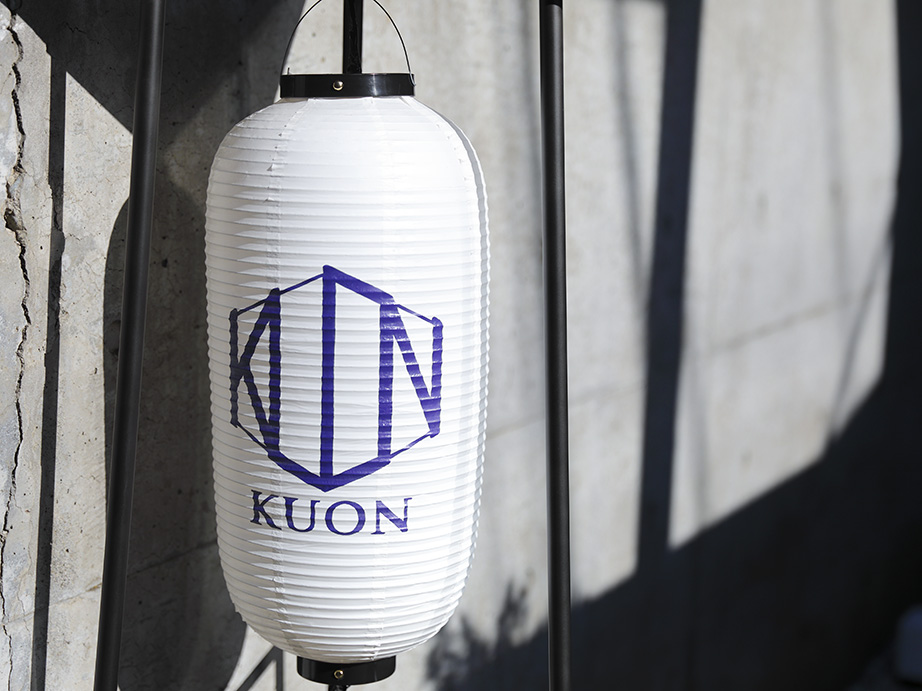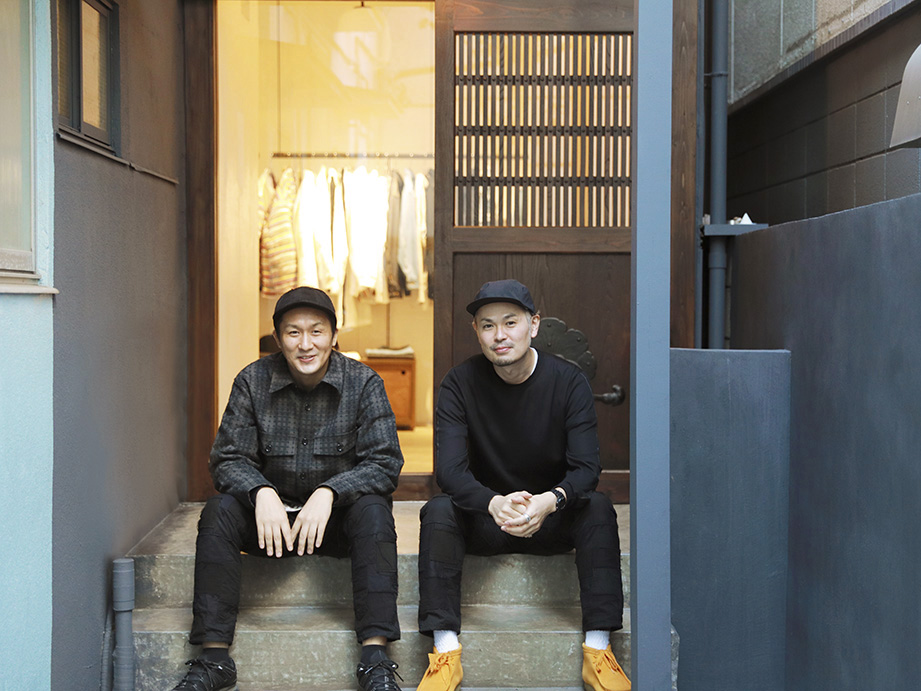Turning your passion into a business
In 2016, two people founded a fashion brand in Tokyo, hoping to make it in the world.
One didn’t go to fashion school and wasn’t an experienced professional in the fashion business by any means. He practiced law but loved consuming fashion in his own time. The other worked diligently as a professional patternmaker and tailor for kolor, a brand that showed their collection at Paris Fashion Week, but had no experience as a designer.
Their names are Arata Fujiwara and Shinichiro Ishibashi, and when their paths met, KUON was born. Now, after just five years since it started, around 40 stores carry their clothes, and in September of this year, they opened a flagship store in Jingumae. At first glance, it appears their respective pasts have nothing in common. How did they meet, create KUON, and grow their brand?
The story goes back to before the beginning of KUON. The founder, Arata Fujiwara, worked in law, and once it was the weekend, he would visit his favorite shops and enjoy all-things-fashion with his friends. The most inspiring shop at the time was Tokishirazu, a clothing store that opened in 2002 in Daikanyama. It was an innovative store in terms of how they carried a mixture of high-end and street fashion brands.
As he split his days working in law and looking at clothes with his friends at Tokishirazu, an unshakeable feeling grew within him. “As I worked in law, I realized that whenever I do a poor job, I get poor feedback in return, and whenever I do a good job, I get good feedback in return. Sure, that wasn’t everything, but I wanted to contribute to society outside of my practice. I wanted to start a social business.”
Fujiwara’s urge to use his free time and start up a social business grew and grew.
“I didn’t want to do fashion initially. I just wanted to start a social business.”
But he thought hard about where he should invest his time and energy while maintaining a job in law. After much deliberation, he came to one conclusion: to turn his passion into a business. The only choice was to set up a social enterprise through something he loved — fashion. He founded his first brand, 1sin, and started his journey into the world of the fashion business. Fujiwara was over the age of 30 at this point.
As he split his days working in law and looking at clothes with his friends at Tokishirazu, an unshakeable feeling grew within him. “As I worked in law, I realized that whenever I do a poor job, I get poor feedback in return, and whenever I do a good job, I get good feedback in return. Sure, that wasn’t everything, but I wanted to contribute to society outside of my practice. I wanted to start a social business.”
Fujiwara’s urge to use his free time and start up a social business grew and grew.
“I didn’t want to do fashion initially. I just wanted to start a social business.”
But he thought hard about where he should invest his time and energy while maintaining a job in law. After much deliberation, he came to one conclusion: to turn his passion into a business. The only choice was to set up a social enterprise through something he loved — fashion. He founded his first brand, 1sin, and started his journey into the world of the fashion business. Fujiwara was over the age of 30 at this point.
As he split his days working in law and looking at clothes with his friends at Tokishirazu, an unshakeable feeling grew within him. “As I worked in law, I realized that whenever I do a poor job, I get poor feedback in return, and whenever I do a good job, I get good feedback in return. Sure, that wasn’t everything, but I wanted to contribute to society outside of my practice. I wanted to start a social business.”
Fujiwara’s urge to use his free time and start up a social business grew and grew.
“I didn’t want to do fashion initially. I just wanted to start a social business.”
But he thought hard about where he should invest his time and energy while maintaining a job in law. After much deliberation, he came to one conclusion: to turn his passion into a business. The only choice was to set up a social enterprise through something he loved — fashion. He founded his first brand, 1sin, and started his journey into the world of the fashion business. Fujiwara was over the age of 30 at this point.
It all began with models of caps
1sin’s first season in 2011 started with caps. The person who helped Fujiwara upon making cap samples was the founder and director of Tokishirazu, Tomohiro Ichinose.
Ichinose is a part of the KUON team today, but one day Fujiwara confided in him about starting up a brand back when he was a customer of Tokishirazu. Ichinose knew the difficulties of running a fashion brand all too well, and so at first, he told Fujiwara that he should give up on starting one. But once he understood his passion, he introduced a manufacturer to him. Once the cap samples were complete, Fujiwara had to find a shop that would carry his brand, 1sin. It is common practice for brands to hold exhibitions or pop-up shops, but Fujiwara took an incredibly old-fashioned approach. He took his cap samples and paid a visit to various stores, hoping to sell his business to them directly.
Whenever he went to a store, he would hand the staff his business card. But the business card was his lawyer card. They would then listen to what he had to say at first, until they noticed something, “hold on a minute, you make clothes?”
Upon learning that the lawyer standing in front of them was trying to do business, most stores cut his talk short. But there was one store that was interested in buying his caps. A fashion brand, started by a 30-something-year-old man with no experience in the industry, found a store that would carry their items.
People that achieve results are regarded as crude by others, and they show a bravado that could only stem from courage. But it doesn’t mean they are always guaranteed to get a good outcome. It still doesn’t change the fact that these types of people have the bravery required to act in big and bold ways, and Fujiwara is one of them. From around 1sin’s third year in business, they made some profit and earned about 20 million yen per year.
As the brand created more items, Fujiwara had a fateful encounter with patternmaker Shinichiro Ishibashi.
After studying his craft at an old and well-established tailor shop in Marunouchi, he worked as a patternmaker at kolor, a brand that showed their collection at Paris Fashion Week. In short, Ishibashi is a clothes maker, through and through. He was working as a freelance patternmaker in 2014 when he met Fujiwara, who asked him to come up with a jacket.
Ishibashi completed a jacket with both sleeves intact the day after they had their meeting. Of course, Fujiwara was impressed by his speed, but he was more surprised by the level of perfection the garment had. Ishibashi’s finesse and skill were head and shoulders above all the patternmakers Fujiwara had worked with in the past. When Ishibashi watched Fujiwara admire his work, he asked him the following.
“Fujiwara-san, which do you like better: the right or left sleeve?” Ishibashi had put on different sleeves on each side so that Fujiwara could choose which design he liked more. He didn’t stop at creating the bare minimum. Instead, he went even further to imagine what Fujiwara might want in a garment. After meeting someone whose work had an overwhelmingly high quality, Fujiwara made a decision.
Because Fujiwara didn’t have a background in fashion design, he customized and arranged used clothing to create his pieces. However, he felt like this method was approaching its limit. As long as his brand could churn out ingenious designs that’ll spread throughout the world, then Fujiwara didn’t have to be the designer per se. In his mind, there was one person and one person only that could take on the role of designer: Ishibashi.
Ishibashi’s career as a patternmaker was extensive, but he had no experience designing. Even if he had zero experience in that regard, his undeniable aesthetic and ability to create an original design gave Fujiwara enough conviction and confidence in him. Fujiwara took on the business side of things and asked Ishibashi to take on the design side of things.
The two of them established a brand with the world twinkling in their eyes; a new chapter had begun.
Boro brought them together, and then they created KUON
The fashion industry sees numerous brands make their debut during fashion week every year. Therefore, they must establish a presence and come up with designs symbolic of their brand if they wish to get new fans. As Fujiwara was in the stages of establishing their brand, he felt compelled to use the concept of “BORO.”
Boro is a Japanese word used to describe old, torn pieces of cloths and worn-out clothing with holes and patches everywhere. Boro garments get patched up repeatedly until they have their unique textiles and tones. They could even end up developing an artwork-like look to them.
This idea fascinated Fujiwara, and he wanted to combine traditional Japanese craftsmanship, such as Boro, and Western fashion, and call it KUON. Boro was an appealing material for Ishibashi because he was born in Iwate prefecture, where Boro culture runs deep. Ishibashi’s burning desire to create clothes grew even more after hearing Fujiwara’s concept. Their passion for the garments turned into the brand’s DNA and accumulated into their debut collection.
In 2016, KUON made its debut with less than ten models of clothes. The debut collection, designed by Ishibashi, had the simple and casual essence of street fashion, combined with nods to traditional Western styles such as the classic and Trad look. They successfully created an original collection by designing Western-ish clothes out of traditional Boro. As a result, buyers wanted to buy and carry KUON in their stores right away. Fujiwara’s decision to appoint Ishibashi as the designer proved to be correct, and Ishibashi’s newfound talent as a designer was blooming.
From Tokyo to New York
In 2018, two years after the establishment of KUON, the brand won the TOKYO FASHION AWARD and was given a chance to take the brand abroad. The outcome of that is their 2020 AW collection. This award selects Tokyo brands and supports their overseas development. KUON was one of the chosen brands, and although that was a feat, Fujiwara had other goals in mind too.
Brands must get the approval of the buyers if they wish to sell their clothes at stores. It’s common for them to take a quick look at pop-up shops of brands without closing a deal. However, when it comes to judges, they spend a long time carefully looking at each pop-up shop to determine each brand’s value. Through Tokyo Fashion Award, Fujiwara and Ishibashi had the rare chance to present KUON to domestic buyers and Sarah Andelman, the founder of the legendary Colette store in Paris. Fujiwara aimed to find a business opportunity there.
His hopes turned into reality. KUON caught the attention of contemporary men’s fashion icon Nick Wooster, which led to The News, a New York showroom known for introducing Alexander Wang and 3.1 Phillip Lim to the world, agreeing to buy KUON’s clothes. It was one more stepping stone towards reaching an international audience.
Currently, KUON has a pop-up in Paris and has officially shown their latest collection at New York Fashion Week. Paris Fashion Week garners the most attention in the industry, and because their official schedule is full of brands, the media has no choice but to focus on only some brands. Even if they were to show at PFW, their exposure in the media would be limited, and they wouldn’t be able to make their name known.
On the contrary, there is more legroom to work with in terms of NYFW’s schedule. Having just arrived in New York, KUON was still relatively unknown to the global audience. Despite that, they got their name on the official calendar, and international fashion media such as WWD JAPAN and Hypebeast reported on the collection. Thanks to this, the brand started gaining more recognition, and they secured more business opportunities abroad. Fujiwara was intent on showcasing their collection in New York because of this. Yes, he is passionate and arduous about the vision he has for KUON, but he can also look at the situation rationally, think about what framework would increase the brand’s worth, and translate that into action. To perceive things from a multitude of angles and seize opportunities: that is his attitude.
The decision to create a social business through fashion
Fujiwara had been wanting to start a social business for a long time and began taking steps towards manifesting that with KUON.
He tackled this head-on in Iwate prefecture in the north-eastern part of Japan. The brand currently is in collaboration with the Otsuchi Sashiko Project, based in Otsuchi, Iwate prefecture, where the Great East Japan Earthquake left devastating effects. The project creates upcycled clothes such as quilted garments using their signature style, Boro. By using old scraps and clothes meant to be thrown away, they rebirth clothes with value. KUON also works with Saccora Japan, a Morioka-based group aimed to support people with disabilities by teaching them the “Sakiori” technique. Sakiori is a traditional technique that uses old fabrics to weave them into a new textile.
The amount of money they paid to commission the Otsuchi Sashiko Project is on their website. During their first year, July 2015 to June 2016, they paid 362,109 yen, and most recently, from July 2019 to June 2020, they gave roughly 17 times that amount, 6,200,000 yen. Because this project takes a tremendous amount of time and energy, it requires a lot of patience for the results to yield. Meaning, it might be a business that won’t show sudden and fast growth. However, because one of the brand’s philosophies is to work on solving social issues through the power of design, spending time and energy for a cause they support is motivating for them. The aspirations Fujiwara had at the beginning were steadily coming to fruition.
The opening of KUON Flagship Store and the future of the brand
In December 2019, Fujiwara was in Shanghai for a project meeting. But the project got postponed to the following year. The reason? Coronavirus. Back then, there weren’t many reports on the virus in Japan, but he experienced the effects of coronavirus before the rest of Japan did, and so he had an inkling it was going to impact the nation and businesses massively.
Fujiwara had an alternative plan: to open KUON’s first flagship store. Opening a store during the pandemic would require a lot of funds and managing it would cost a lot too. Anyone would think it would be far too risky to open a store but, Fujiwara had already made up his mind.
“I thought it was better to do something than do nothing. Opening a shop was one of our goals, anyway. It was huge to see our customers’ faces once we opened it. I now know what they want, more than before.”
Fujiwara isn’t afraid of obstacles, as he sees what lies beyond them. KUON is where it is today because of it. Ishibashi actualized Fujiwara’s thoughts and feelings and turned his design skills into a business. What would it mean to show their collection during Paris Fashion Week, which is the top of the top? Isn’t that the ultimate goal for KUON, especially because Ishibashi has experienced showing at PFW before? When asked this question, Ishibashi rejects the proposed notion. He says, “Paris isn’t everything. There are more important things than that.”
KUON exists today thanks to the support the duo received from many people. Ishibashi can create Boro garments because of the technicians in north-eastern Japan. Fujiwara could cultivate KUON thanks to the brand’s fans and customers. They now have more staff on their team too, so it’s no longer just the two of them. The duo is sure to evolve the brand alongside the people that have stuck on their side.
When people slowly and steadily develop their values over time, they could even come up with something out of their wildest dreams. This sentiment applies to fashion and life in general. “Newness” isn’t the only value in the fashion world. Some take time to nurture, and there is a timeless beauty to clothes made with time and care. Boro is one example of this. The far past connects to the present, just as the present moment leads to the distant future. KUON designs time. New things age with time, but beautiful things will always remain beautiful.
Arata Fujiwara
Arata Fujiwara is the founder of the menswear brand KUON and the CEO of MOONSHOT. He founded 1sin in 2011 and established KUON with Shinichiro Ishibashi as the designer with their 2016 SS season. He continues to work in law while showcasing menswear that uses traditional Japanese craftsmanship.
Shinichiro Ishibashi
Shinichiro Ishibashi worked as the patternmaker for kolor after his apprenticeship at a well-established tailor shop in Marunouchi. He started working as a freelance patternmaker in 2014 and has worked with various brands. He was appointed as the designer of KUON, starting from the brand’s 2016 SS collection. In 2018, he won the Tokyo Fashion Award.
https://www.kuon.tokyo/
Instagram:@kuon_tokyo
Photography Shinpo Kimura
Translation Lena-Grace Suda

